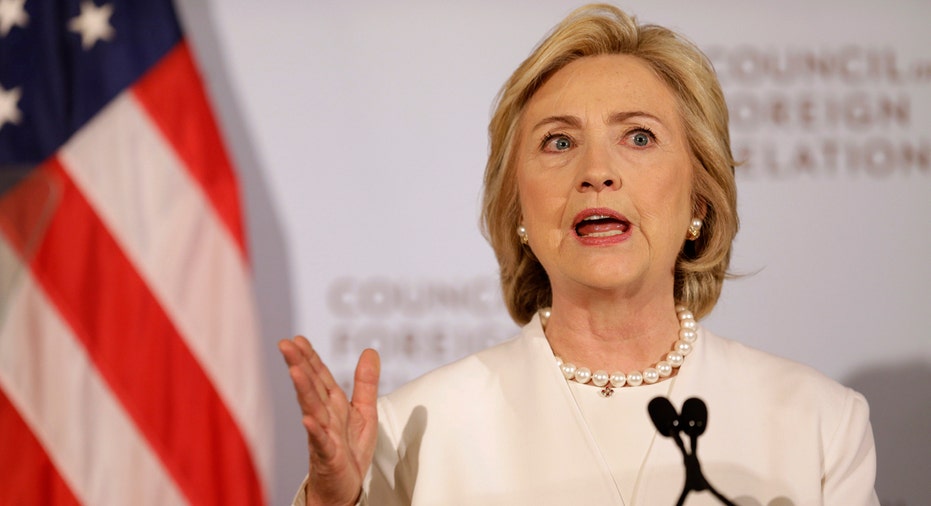Clinton To Target 'Inversions' With Exit Tax

Democratic presidential hopeful Hillary Clinton unveiled plans Wednesday to crack down on companies that seek to dodge U.S. taxes by denouncing their U.S. citizenship and moving their headquarters overseas.
Specifically, Clinton’s proposal, announced during Town Hall meetings in Iowa, would target a practice known as “earnings stripping,” in which companies that have shifted their tax addresses overseas in a tactic known as an "inversion" take advantage of various loopholes to reduce their tax burdens.
“The maneuvers powerful corporations are using to game the system and leave everyday taxpayers holding the bag are just offensive,” Clinton said in a statement.
Inversions have raised the ire of politicians from across the political spectrum as the practice has escalated in recent decades.
In the largest inversion to date, pharmaceutical giant Pfizer (NYSE:PFE) announced last month it will merge with Irish drug maker Allergan, with Pfizer relocating its corporate headquarters from New York to Dublin.
“All told, inversions by Pfizer and other companies, plus related loopholes, will cost American taxpayers more than $80 billion in revenue over the next 10 years. That’s money we should be investing here at home. This is not only about fairness; this is about patriotism. I want to raise the cost to corporations that try to get out of paying their fair share,” Clinton added, according to a statement released by her campaign.
Clinton said as president she would initiate an “exit tax” on the untaxed earnings of corporations that use inversion deals to relocate overseas.
In an effort to avoid paying the higher tax rate, U.S. companies have increasingly sought so-called inversions, or mergers that allow them to relocate their headquarters in countries with lower tax rates. For instance, by moving its corporate headquarters to Ireland, Pfizer will be lowering its tax rate from 25% in the U.S. to below 20% on the other side of the Atlantic.
Pfizer’s CEO Ian Read has argued that a drug company that pays lower taxes can spend more on research and development.
Other high-profile U.S. companies that have completed inversions in recent years include fast food chain Burger King Worldwide (NYSE:BKW), drug maker Mylan (NASDAQ:MYL) and advertising giant Omnicom Group (NYSE:OMC).
In 2014, during a speech on job creation, President Barack Obama took direct aim at inversions, urging Congress to pass tax reforms that would eliminate the loopholes that allow U.S. companies to shield large portions of their profits overseas.
And last month the Treasury Department announced an array of new rules that would make it harder for companies to shift their addresses overseas solely to avoid paying U.S. taxes. It was the Treasury’s second stab at discouraging inversions in the past year-and-a-half, since the practice became a hot-button political issue in Washington.
Clinton took on Wall Street earlier this week, calling for a broad crack down on the financial system she says is needed to prevent another financial crisis like the one in 2008 that crippled the global economy.



















